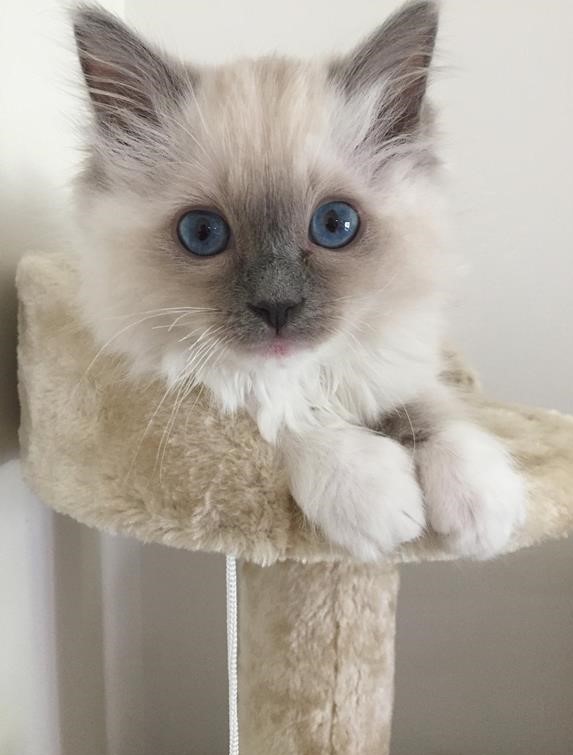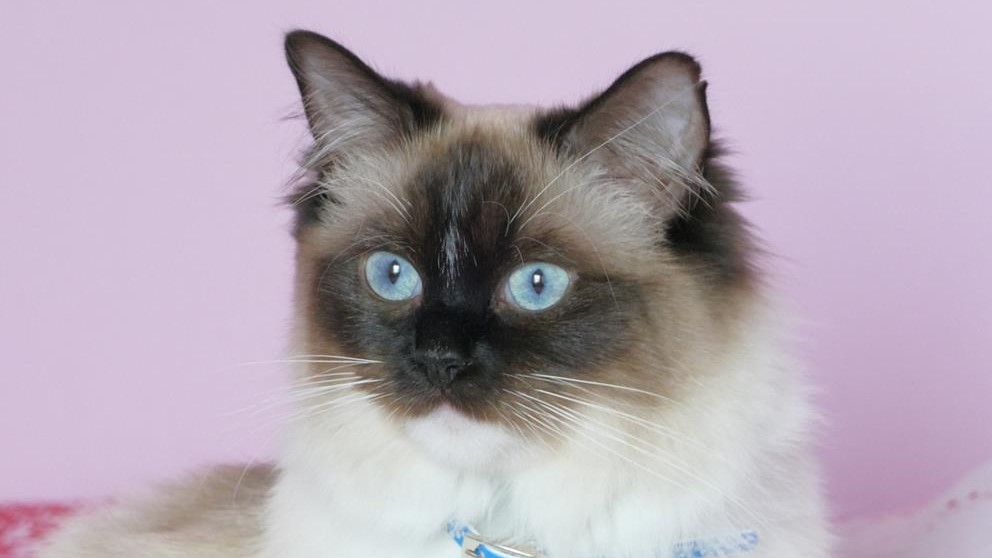Ragdoll cats are known for their luscious coats, but like all cats, they can experience hair loss due to various factors. While some causes of hair loss may require professional veterinary care, there are also several home treatments and preventive measures you can take to address hair loss in your Ragdoll cat. In this article, we’ll explore home treatment options and essential care tips to help your beloved feline regain its beautiful fur.
- Regular Grooming:
- Grooming your Ragdoll cat is a fundamental aspect of maintaining a healthy coat. Brush your cat regularly to remove loose fur, prevent matting, and stimulate blood circulation to the skin.
- Proper Diet and Nutrition:
- Ensure your cat is on a well-balanced diet that meets its nutritional needs. Consult with your veterinarian for dietary recommendations, especially if you suspect allergies as a cause of hair loss.
- Allergy Management:
- If allergies are suspected, consider making environmental changes to reduce allergen exposure. Vacuum and clean your home regularly to minimize dust and pollen. Consult with your veterinarian about potential food allergies and switching to hypoallergenic cat food.
- Flea and Tick Prevention:
- Use veterinarian-recommended flea and tick prevention products to protect your cat from external parasites. Regularly check your cat for signs of infestation, and promptly address any issues.
- Stress Reduction:
- Stress and anxiety can contribute to hair loss in cats. Create a calm and stimulating environment for your Ragdoll cat, provide interactive toys, and ensure it has a secure and quiet space to relax.
- Hydration and Moisture Control:
- Ragdoll cats have dense fur, making them prone to moisture retention. Ensure your cat stays adequately hydrated, and keep its living area dry. Avoid exposing your cat to damp conditions.
- Topical Remedies:
- Consult with your veterinarian before using any topical remedies or shampoos on your cat’s skin. They can recommend gentle and cat-safe products to soothe irritated skin if needed.
- Supplements:
- Omega-3 fatty acid supplements, such as fish oil, may help improve skin and coat health. Discuss supplements with your veterinarian to determine the appropriate dosage for your cat.
- Regular Veterinary Check-ups:
- Schedule routine veterinary examinations to monitor your cat’s overall health. Your veterinarian can detect underlying issues early and recommend appropriate treatments.
- Avoid Over-Bathing:
- While regular grooming is important, over-bathing can strip your cat’s skin of natural oils and exacerbate hair loss. Consult your veterinarian for guidance on bathing frequency.

10 Frequently asked questions (FAQ) about home treatment for Ragdoll cat hair loss:
- What could be causing my Ragdoll cat’s hair loss?
- Hair loss in Ragdoll cats can be caused by various factors, including allergies, parasites, skin infections, or underlying health issues. Identifying the cause is crucial for effective treatment.
- Can I treat my Ragdoll cat’s hair loss at home?
- Some causes of hair loss may be treatable at home, but it’s essential to consult with a veterinarian for a proper diagnosis and treatment plan.
- Are there specific grooming practices that can help reduce hair loss in Ragdoll cats?
- Regular and gentle grooming can help minimize hair loss by removing loose hair and preventing matting. Use a soft brush designed for cats to avoid skin irritation.
- Should I change my Ragdoll cat’s diet to address hair loss?
- Consult with your veterinarian before changing your cat’s diet. In some cases, dietary changes or supplements may be recommended to improve coat health.
- Can over-bathing contribute to hair loss in Ragdoll cats?
- Excessive bathing can strip natural oils from the skin, leading to dryness and potential hair loss. Limit baths to when they are necessary and use a mild cat shampoo.
- Are there specific shampoos or topical treatments that can help with hair loss in Ragdoll cats?
- Your vet can recommend appropriate shampoos or topical treatments, depending on the cause of hair loss. Never use human or dog products on your cat without professional guidance.
- Is it safe to use over-the-counter flea treatments for hair loss in Ragdoll cats?
- Consult your veterinarian before using any flea treatments, as they can recommend safe and effective options tailored to your cat’s needs.
- Can stress or anxiety contribute to hair loss in Ragdoll cats, and how can it be managed at home?
- Stress or anxiety can sometimes lead to excessive grooming and hair loss. Creating a calm environment, providing enrichment, and using pheromone diffusers may help reduce stress.
- Are there any natural remedies or supplements that can promote hair regrowth in Ragdoll cats?
- Some supplements, such as fatty acid supplements or omega-3 fatty acids, may support coat health, but always consult with your vet before trying any natural remedies.
- When should I seek professional veterinary care for my Ragdoll cat’s hair loss?
- If your cat’s hair loss is extensive, persistent, or accompanied by other symptoms like redness, inflammation, or behavior changes, consult your veterinarian promptly for a thorough evaluation and diagnosis.
Remember that the underlying cause of hair loss in your Ragdoll cat will determine the most appropriate treatment, so professional guidance is crucial for effective care.
Conclusion
Hair loss in Ragdoll cats can have various causes, and addressing it may require a combination of home care and professional veterinary treatment. Be patient and attentive to your cat’s needs, and consult with your veterinarian for guidance on managing hair loss effectively.
Remember that each cat is unique, and what works for one may not work for another. Tailoring your care routine to your Ragdoll cat’s specific needs and addressing any underlying health concerns will help ensure that your feline friend maintains a healthy and beautiful coat. Your Ragdoll cat’s well-being and comfort should always be the top priority.



